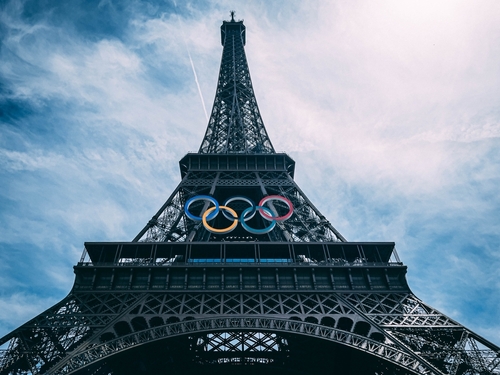
In a heartbreaking turn of events at the 2024 Paris Olympics, a female boxer withdrew from her match in tears after facing a transgender opponent. The incident has sparked a heated debate over the inclusion of transgender athletes in women’s sports, bringing both supporters and critics to the forefront.
The bout, which took place on July 31, saw the female boxer, whose identity has been withheld for privacy reasons, face off against a competitor who was assigned male at birth but now identifies as female. Despite the intense training and preparation, the biological differences proved too challenging for the female boxer, leading to her emotional breakdown and decision to quit the match.
https://x.com/Matt_Pinner/status/1819017743124803689
The International Olympic Committee (IOC) has been under fire for its policies regarding transgender athletes. Critics argue that allowing individuals with male genetic characteristics to compete in women’s events is unfair and compromises the integrity of female sports. Italy's Prime Minister Giorgia Meloni has been particularly vocal, condemning the IOC's decision and highlighting the potential risks and disadvantages faced by female athletes.
Riley Gaines, a former competitive swimmer and outspoken advocate for female athletes, expressed her support for the boxer who chose to step down. Gaines, who has previously faced similar controversies, praised the athlete’s courage in standing up for what she believes is right.
https://x.com/GeeFromNY/status/1819000860514365612
The controversy reached a boiling point when brutal footage emerged of the match, showing the transgender boxer dominating the fight. This has intensified the calls for a reevaluation of the rules governing the participation of transgender athletes in women’s sports. Many argue that the current policies do not adequately protect the interests and safety of female competitors.
This incident is not an isolated case. Similar scenarios have played out in various sports, prompting ongoing debates and legal battles. In Quebec, boxer Katia Bissonnette recently withdrew from a championship fight after discovering her opponent was a transgender woman. Bissonnette’s decision was met with both support and criticism, mirroring the divided public opinion on this sensitive issue.
The IOC has maintained that its guidelines are based on scientific evidence and aim to ensure fairness. However, the growing number of incidents and the emotional toll on athletes like the one in Paris indicate that a more nuanced approach may be necessary. As the debate continues, it is clear that the sports community must find a balance that respects both inclusivity and fairness.
The fallout from this latest incident is likely to have significant implications for future Olympic policies and the broader conversation around gender identity in sports. Athletes, coaches, and policymakers will need to work together to address these complex challenges and ensure that all competitors have a fair and safe environment in which to compete.











